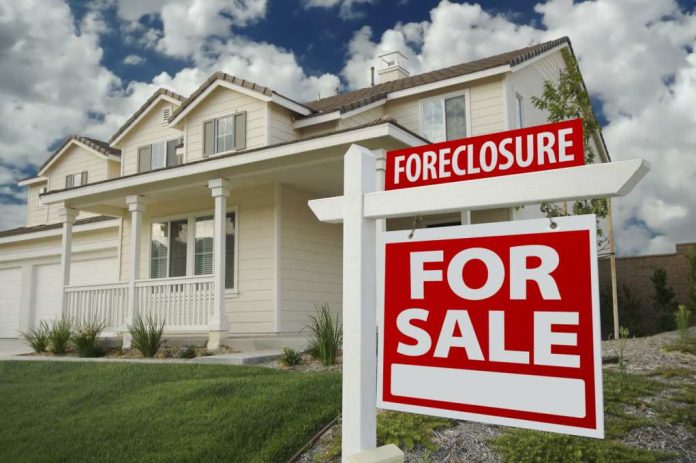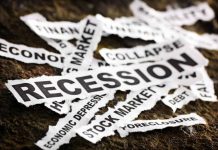
The housing market has a wide range of options to figure out where to buy your next home. One type of home that you should consider buying is a home that faces foreclosure. People tend to choose this option during the homebuying process because generally foreclosed homes are listed at a much more affordable price. The price can be lower than usual, but there is a catch. The catch is that you do not know how well the property was maintained–it could be a mess. There are a lot of questions that you might have about buying a home that faces foreclosure. This article may be able to provide a little clarity on all your questions.
Foreclosure 101: Everything You Should Know
The process of foreclosure takes place when a residential property is taken over and owned through a bank or a lender because the borrower was not able to repay the debt. A lender could be a mortgage firm and a borrower is typically the person who lived on the property. Once the borrower moves out of the property, the bank returns the property to the market and tries to sell it. That way, the bank can cut their losses from the borrower’s lack of ability to pay back the mortgage.
Homes that face foreclosure are usually put up for sale at a discounted cost or the bank offers the homes at auctions. Typically, households who cannot repay their property loans do not have the funds to pay for the upkeep of the property. This is why you should expect a lot of home repairs when you buy a home that faces foreclosure.
Why are Foreclosed Homes Cheaper in the Market?
The main reason that potential home-buyers consider properties that face foreclosure is the reduced price. These discounted prices are significantly less than their comparable counterparts. You will find that these properties also come with additional reduced costs. This could include a reduced down payment, lower interest rates, and fewer closing costs. Additionally, homebuyers prefer these types of properties because it takes advantage of the premise that the sellers of the property are financially struggling. As an example, a home that is currently in pre-foreclosure could mean that the sellers are desperate to get rid of the property. In this case, the homebuyers have the upper hand while negotiating costs, since the sellers are desperate to get the property off their hands.
If the property is seized from the current owners, then homebuyers have a bigger advantage. This is because these homes are cheaper because they are sold in their current condition. If a person is struggling to pay off their mortgage, they will probably struggle to properly maintain the property.
How to Find a Foreclosed Home
If you want to find a home that faces foreclosure, you might not find it as easy as you think. The best place to start looking for foreclosed homes is through multiple-listing service (MLS) websites, newspapers, and online searches. When you review these properties, you need to be vigilant about the foreclosure mentioned. You might not find out about the property in the headline, but you can find it in the property description. Additionally, you can reach out to a local real estate agent and find out about any opportunities they know about.
How Do Foreclosed Listings Work?
When you are looking for different homes that face foreclosure, you will come across five different types of foreclosures. These five types are:
- Pre-Foreclosure Homes
- Short Sales
- Auction Homes
- Directly Purchased by the Bank
- Properties that the Government Owns
Pre-Foreclosure Homes
Pre-foreclosure homes are the start of the foreclosure process. This is when the lender files a notice of default on the property and notifies current borrowers. Pre-foreclosure takes place before the property is listed for sale at an auction. During the pre-foreclosure stage of the process, the homeowner will receive a letter that states that the foreclosure process will start. It is common to find property owners trying to sell their residence as a pre-foreclosure property. For the home-buyer, it is a benefit to look into pre-foreclosure properties because the owners are eager to sell the property as soon as possible to repay their loan.
Short Sales
When the lender accepts a lesser amount for the home than the amount for the mortgage, it is a short sale. Borrowers may not have to be in default in order for lenders to agree to a short sale. However, if a lender agrees to a short sale, then the current owner will need to provide documents that prove they are financially struggling. This could include loss of employment or proof of financial hardship. When you are looking for properties that face foreclosure, short-sale properties are likely listed as pending bank approval properties.
When you purchase a short sale home, you find that it is similar to the standard home buying process. The only difference is that you will notice the language in the contracts is not the same. You will find that the short sale purchase process can take longer than a standard home buying process. This is why it is important to think about it when you review your options.
Auction Homes
Once the grace period expires for the borrower to repay their mortgage after they are notified, a sheriff’s sale auction is the next step. This auction’s purpose is for the lender to get paid as soon as possible since the loan is in default. You will find these auctions in several environments. Typically, you will find these auctions in front of an official building. Also, you will find signs advertising the auction, as well!
Directly Purchased from the Bank
When a property cannot get a sale at the auction, it will go back to the bank. This is when the property becomes a real estate-owned (REO) property. In the end, you can save yourself the trouble of going to auctions and purchase the property directly from the bank.
Properties That the Government Owns
If a property is purchased with a federally-backed loan like an FHA loan, then it is repossessed by the government and not a financial institution. Once the government possesses the property again, government-registered brokers sell these properties. If you are considering buying a property that the government owns, you will need to reach out to these brokers. Potential homebuyers can look through options online on the U.S. Department of Housing and Urban Development (HUD) website.
Cons of Purchasing a Foreclosed Property
There are a lot of advantages to buying these types of properties, such as the cheaper costs. However, there are also some disadvantages that come with purchasing a property that faces foreclosure. These disadvantages include:
- Problems with the property
- Hidden costs
- Slow purchase process
- Competitive markets
Problems with the Property
When you purchase a property in its current condition, then you will need to know that there is a lot of risk involved. The risks could come from the major repairs you will need to make. Additionally, there are minor repairs that you will likely need to handle as well. You should also keep in mind that the previous homeowners can be uncooperative. If a person is dealing with foreclosure, then they can take it out on the property before the bank repossesses it. This means you will be responsible to clean up the mess they made.
Hidden Costs
These properties could sound too good to be true, which is why you need to deal with the hidden costs that could follow. Hidden costs such as liens or back taxes can lead to more expenses for a potentially damaged home. So, be careful about the hidden costs that could follow a home that faces foreclosure. You need to keep in mind that all the money needs to be repaid before the buying process is finalized.
Slow Process
A foreclosure typically means a lot of paperwork and a slow process. There are so many roadblocks that you could run into during the homebuying process. As an example, if the property contains a lot of damage, then you will find a low home appraisal value. The low home appraisal value can lead to having a harder time for you to secure funding. Also, this could make the process take even longer than usual.
Competitive Market
If there is a home that comes at a cheaper price, then it will probably attract several homebuyers. This means that there is more competition. When there is a high demand for a property, this can lead to bidding wars on the property. If a bidding war continues for a long period, the property could become overpriced. It can be discouraging if another home buyer provides a higher bid. However, keep in mind that you should check back periodically because it’s not uncommon for foreclosure deals to fall through.
Conclusion: Do You Want to Purchase a Foreclosed Home?
Foreclosed properties are another option to consider when you are trying to buy a property. These homes typically come at a more affordable price. However, that isn’t for no reason. These properties were not properly handled by their original owners. That means that the lender is trying to recoup any losses that they may be facing. If you are interested in looking for these types of properties then you can check out MLS websites, newspapers, and conduct online searches. There are five common types of foreclosed properties that you can expect to come across which includes:
- Pre-Foreclosure Homes
- Short Sales
- Auction Homes
- Directly Purchased by the Bank
- Properties that the Government Owns
It’s important to keep in mind that the specific way to handle the process of purchasing these properties will vary by type. However, there may be more opportunities than you realize when it comes to buying a home.
















